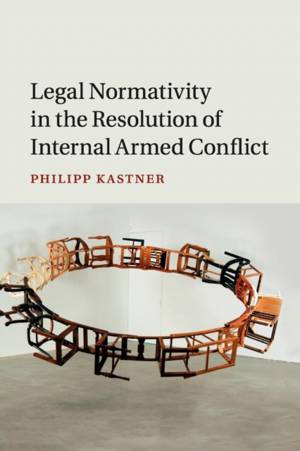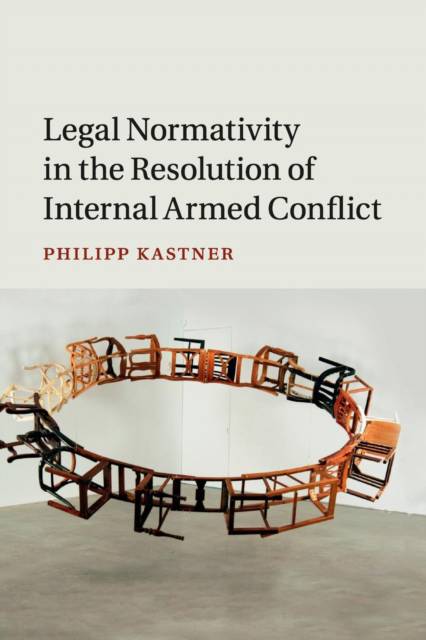
- Afhalen na 1 uur in een winkel met voorraad
- Gratis thuislevering in België vanaf € 30
- Ruim aanbod met 7 miljoen producten
- Afhalen na 1 uur in een winkel met voorraad
- Gratis thuislevering in België vanaf € 30
- Ruim aanbod met 7 miljoen producten
Zoeken
€ 64,95
+ 129 punten
Uitvoering
Omschrijving
With an estimated ninety-five percent of the world's armed conflicts occurring within individual states, resolution and prevention of internal conflicts represent a main driver of global peace. Peace negotiations stand outside the traditional formalism of lawmaking and represent a uniquely privileged moment to observe the rise or adjustment of the legal framework of a given state. Based in a socio-legal and pluralistic understanding of law, this book explores the normative dynamics of peace negotiations. It argues that the role of law in the peaceful resolution of internal armed conflicts has been greatly underestimated and that legal theory can and should contribute to a better comprehension of these processes. Including thematic case studies from Darfur, North-South Sudan, Uganda, Côte d'Ivoire, Colombia, Sri Lanka, Sierra Leone, Mozambique, Bosnia and Israel-Palestine, this volume will be of use to scholars, students and affiliates of international organizations and non-governmental organizations.
Specificaties
Betrokkenen
- Auteur(s):
- Uitgeverij:
Inhoud
- Aantal bladzijden:
- 230
- Taal:
- Engels
Eigenschappen
- Productcode (EAN):
- 9781107514874
- Verschijningsdatum:
- 13/07/2017
- Uitvoering:
- Paperback
- Formaat:
- Trade paperback (VS)
- Afmetingen:
- 152 mm x 229 mm
- Gewicht:
- 312 g

Alleen bij Standaard Boekhandel
+ 129 punten op je klantenkaart van Standaard Boekhandel
Beoordelingen
We publiceren alleen reviews die voldoen aan de voorwaarden voor reviews. Bekijk onze voorwaarden voor reviews.








